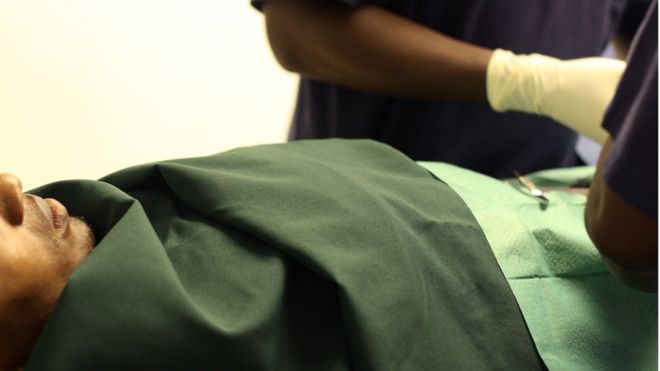Tanzania ranks high globally when it comes to HIV/AIDS infection rates in the world. The country’s 2016 figures showed that some 5 percent of the adult population is infected by the disease.
That made it the 13th highest when it comes to rate of infection in the world. Reducing infection rates is a priority for every country struggling with the disease in Africa.
But in Tanzania, a female MP says men lawmakers must be circumcised if they are found to be uncircumcised.
Jackline Ngonyani says her call for male MPs to undergo circumcision will reduce the risk of HIV transmission among men.
She made the call in parliament this week. The MPs were debating the best way to curb the spread of HIV in Tanzania.
Ngonyani’s demand is backed by a report from the World Health Organization (WHO) that says circumcision can reduce the risk of men contracting HIV by around 60%.
Controversial call
Ngonyani is demanding a check of all male MPs and those found not to have been circumcised being forced to undergo surgery.
Her call during the parliamentary demand was backed by some male MPs although others considered it disrespectful.

Most Tanzanian men have been circumcised but that is just around 70 percent of the male population.
Circumcision of men involves surgically removing the foreskin from the penis.
Many African communities and societies promote the circumcision of male children. The procedure is usually carried out immediately the male child is born.
In 2017 a research conducted among South African women with circumcised partners showed that they experienced better sex and were at lower risk of contracting HIV.
The study, “Association Between HIV and Sexually Transmitted Infections and Partner Circumcision Among Women in South Africa” interviewed 4,766 female participants.
The findings were presented at the 9th International Aids Society on HIV Science in Paris, France in 2017.
Women on sex with circumcised men
“Women who reported vaginal and urinary symptoms prior to their partner’s circumcision reported a substantial decrease in the symptoms after circumcision,” said the report.
One of the researchers, Dr. Stockton Mayer was then quoted by the Daily Nation to have said that “almost all women had recommended the procedure to other couples and focus group data confirmed high levels of acceptability and satisfaction due to perceived improvements in their sex life and health.”
In 2008 some Kenyan top politicians voluntarily underwent surgery to get their foreskin removed from their penis.
It was meant to encourage men from their communities to do the same. The purpose was to help reduce the spread of the HIV/AIDS disease.
Source: Africafeeds.com



